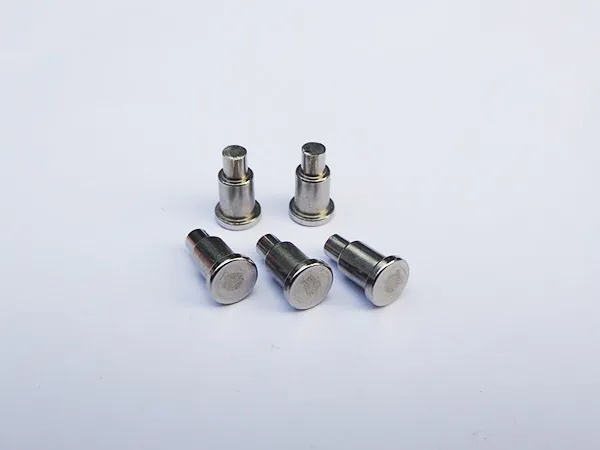
2024-06-12 15:23:54
Comparative Analysis of Carbon Steel Heading Shaft, Stainless Steel, and Aluminum Alloy
Introduction
Carbon Steel Heading Shaft, stainless steel, and aluminum alloy are three commonly used materials in manufacturing due to their distinct properties and applications. Understanding their advantages, disadvantages, and suitability helps in selecting the right material for specific industrial and mechanical purposes. As a company specializing in the production of special precision screws and Nuts conforming to various standards (GB, JIS, BS, ANSI, ISO), this comparison will provide insights into their characteristics.

Advantages:
Strength: Carbon Steel Heading Shaft exhibits high tensile strength and is suitable for applications requiring robust mechanical properties.
Cost-effectiveness: It is relatively economical compared to stainless steel and aluminum alloy.
Machinability: Carbon steel is easier to machine and form into various shapes during manufacturing processes such as cold heading.
Disadvantages:
Corrosion Resistance: Compared to stainless steel, carbon steel has lower corrosion resistance, requiring protective coatings or treatments in corrosive environments.
Weight: It is heavier than aluminum alloy, which can be a consideration in weight-sensitive applications.
Surface Finish: Achieving a fine surface finish may require additional processing steps due to its composition.
Suitability:
Ideal for applications where high strength and cost-efficiency are prioritized, such as automotive components, construction hardware, and machinery parts.
Stainless Steel
Advantages:
Corrosion Resistance: Stainless steel offers excellent resistance to corrosion, making it suitable for use in marine environments and applications exposed to moisture and chemicals.
Aesthetic Appeal: It has a visually appealing shiny finish, making it ideal for decorative applications.
Hygienic Properties: Stainless steel is easy to clean and maintain, making it suitable for food processing and medical equipment.
Disadvantages:
Cost: Stainless steel is generally more expensive than carbon steel and aluminum alloy.
Strength: It typically has lower tensile strength compared to carbon steel, affecting its suitability for high-strength applications.
Machinability: Stainless steel can be more difficult to machine due to its hardness and toughness.
Suitability:
Used in environments where corrosion resistance and hygiene are critical, such as pharmaceutical equipment, kitchen appliances, and architectural fittings.
Aluminum Alloy
Advantages:
Lightweight: Aluminum alloy is significantly lighter than both carbon steel and stainless steel, making it ideal for applications where weight reduction is essential.
Corrosion Resistance: Aluminum alloys naturally form a protective oxide layer, offering good corrosion resistance in many environments.
Conductivity: It has good thermal and electrical conductivity properties, suitable for heat sinks and electrical components.
Disadvantages:
Strength: Aluminum alloy generally has lower tensile strength compared to carbon steel and stainless steel, limiting its use in high-strength applications.
Cost: While less expensive than stainless steel, aluminum alloy can be more costly than carbon steel, depending on the alloy composition.
Surface Wear: Aluminum alloys can wear faster under abrasive conditions compared to steel.
Suitability:
Commonly used in aerospace, automotive, and electronics industries where lightweight materials with good corrosion resistance and conductivity are required.
In conclusion, the choice between Carbon Steel Heading Shaft, stainless steel, and aluminum alloy depends on specific application requirements such as strength, corrosion resistance, weight considerations, and cost-effectiveness. Each material offers distinct advantages and disadvantages that must be carefully evaluated based on the intended use case. As a company dedicated to producing high-quality precision components meeting global standards, understanding these material properties enhances our ability to provide tailored solutions to diverse industrial needs.